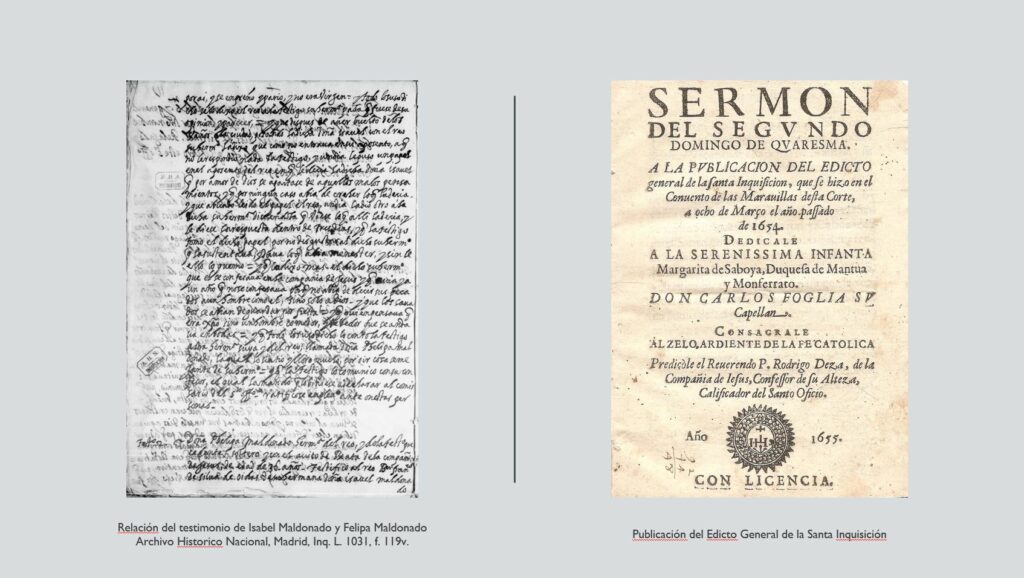Aimee Dávila Hisey, a PhD candidate in the History and Philosophy of Science program at Oregon State University recently presented her work at the Rocky Mountain Council for Latin American Studies Annual Conference on March 18. Hisey’s presentation was titled “‘If I Had a Thousand Lives, I Would Lose Them All in Observance of Moses’: A Prominent Jewish Surgeon in Seventeenth-Century Santiago de Chile.” Hisey discussed the life, work, and religious turmoil of Francisco Maldonado de Silva, a Jewish surgeon living in Santiago de Chile in the seventeenth century.
Hisey began her presentation with a captivating description of how Maldonado de Silva circumcised himself to emphasize his commitment to Judaism. While a bit squeal-inducing, it illustrated Maldonado de Silva’s devotion to Judaism and introduced the secrecy in which it was practiced. Hisey argued that “the authority bestowed upon [Francisco Maldonado de Silva] by his degree of bachiller (meaning that he was a licenciate, having attended university and graduated with his licensure in medicine) granted Maldonado de Silva a striking degree of agency previously unseen by other crypto-Jews before the Inquisition, including his father before him. She presented a history of how Maldonado de Silva was raised as a Catholic and his subsequent questioning of his faith, his conversion to Judaism and his shared bond with his father, also a Jew practicing in secret, and his attempt to convert his sisters to Judaism, which ultimately led to his imprisonment. Hisey further discussed Maldonado de Silva’s writings in prison, his attempts to convince other crypto-Jews in prison to retain their faith, and his choice to accept the Nazarite Vow, an intense set of rules that further consecrated himself to God, during which he engaged in extended fasts and he changed his name. Hisey concluded by arguing that Heli Nazareo (Maldonado de Silva’s changed name) was driven to shifting his identity by the education and authority bestowed to him as a bachillier and he martyred himself, dying a Jew and never reconciling to the Catholic church.

I asked Hisey how presenting at a conference dedicated to Latin American Studies rather than History of Science affected her process:
“It’s hard to talk about the actors who “do” science without considering other aspects of their lives. Science is not objective, because it’s done by people who are not objective. People are influenced by myriad factors that affect the way they think, work, and make decisions. I’m strongly influenced by people like Jan Golinsky and James Delbourgo who emphasize the cultural and geographical influences on histories of science. In the case of this presentation, I focused on identity. Francisco Maldonado de Silva’s (Heli Nazareo’s) faith became the crux of his entire identity, more so than his profession as a renowned physician. It would be ignorant, even revisionist, to approach his work in medicine without taking this enormous influence into consideration.”
I also asked Hisey how she felt this presentation contributed to her scholarly and professional growth:
“When I started trying to put panels together, I reached out to 8-10 prominent scholars in my field and asked if they had any grad students researching themes similar to my own. So many of them wrote back with suggestions and contact information, some even offered to chair or moderate any panel that we came up with. It was surreal and humbling to have people whose work I’ve read and who I look up to, offer their assistance. I then reached out to the graduate students and was surprised at how many were interested and excited to be part of the panel. For this particular panel and another that I submitted, I spoke with graduate students from San Diego State University, University of Wisconsin, Madison, and Rutgers as well.”
Congratulations to Aimee on a wonderful presentation and hopefully many more to come!
CATEGORIES: Graduate Students
